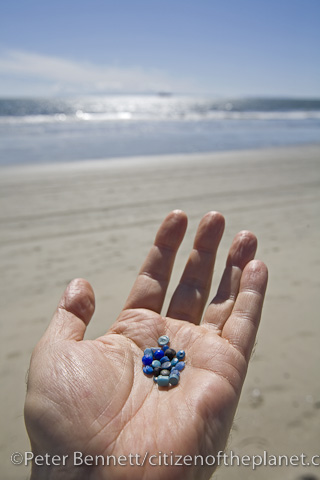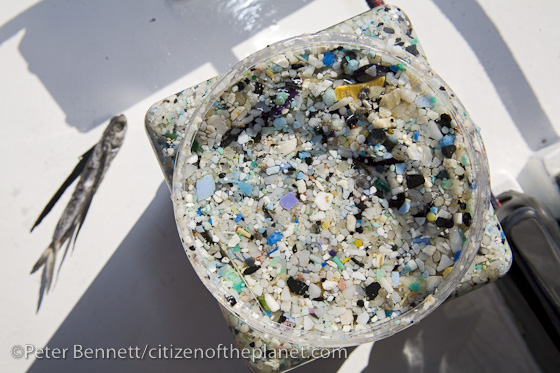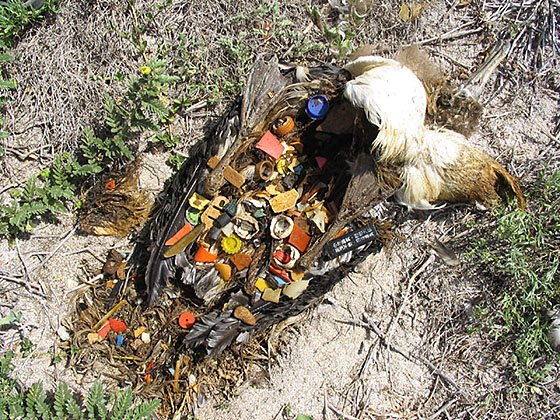Nurdles
I woke up this morning to the news the California State Senate failed to pass a ban on plastic bags, really sad news and a disgusting example of our government for sale. The havoc these bags cause to our oceans and waterways is devastating to fish, wildlife and ultimately us. Toxins such as Phthalates, that leach from the plastic, as well as pollutants that adhere themselves to the macro plastic particles, get into the food chain as more and more of the fish we eat mistake these macro particles for their food.
A lot of people are aware of the problems with plastic bags, but many may not know that another culprit is a benignly named little bugger called the nurdle. Nurdles are pre-production plastic pellets and resin materials typically under 5mm in diameter, that are used in the production and manufacturing of thousands of the products we use. Over 250 billion pounds of nurdles are shipped each year, and many, many of them fall off of railroad cars and ships, and then find their way to our oceans and beaches.
It is estimated that about 10% of the litter found on beaches worldwide are nurdles. I roamed a beach in Seal Beach, just south of Long Beach, to find hundreds of them lying around the beach, I can tell you the story is the same on most any other beach you might find yourself beach-combing on. Nurdles are just part of the family of plastic trash that is caught in the Great Pacific Garbage Patch in the North Pacific Gyre that wash up on our beaches and get ingested by birds and fish. Atolls in the Hawaiian archipelago like Kure and Midway are littered with plastic debris and the carcasses of albatrosses that migrate there and eat the plastic particles, and either suffocate or starve to death. The graphic example of what was found inside the belly of an albatross is courtesy of the Algalita Marine Research Foundation, an organization that is doing extraordinary work in the areas of research and education concerning plastic in our oceans.
There is no easy way to wrap this up I’m afraid, passage of the plastic bag ban would have been a good start. This leaves it up to local cities and towns to institute bans, which has already started to happen in towns like San Francisco and Palo Alto, with other cities like Santa Monica and Manhattan Beach soon to follow. As long as the chemistry and petroleum industry has millions of dollars to spend swaying the votes of our legislators, it will be a long hard fought battle each time.



